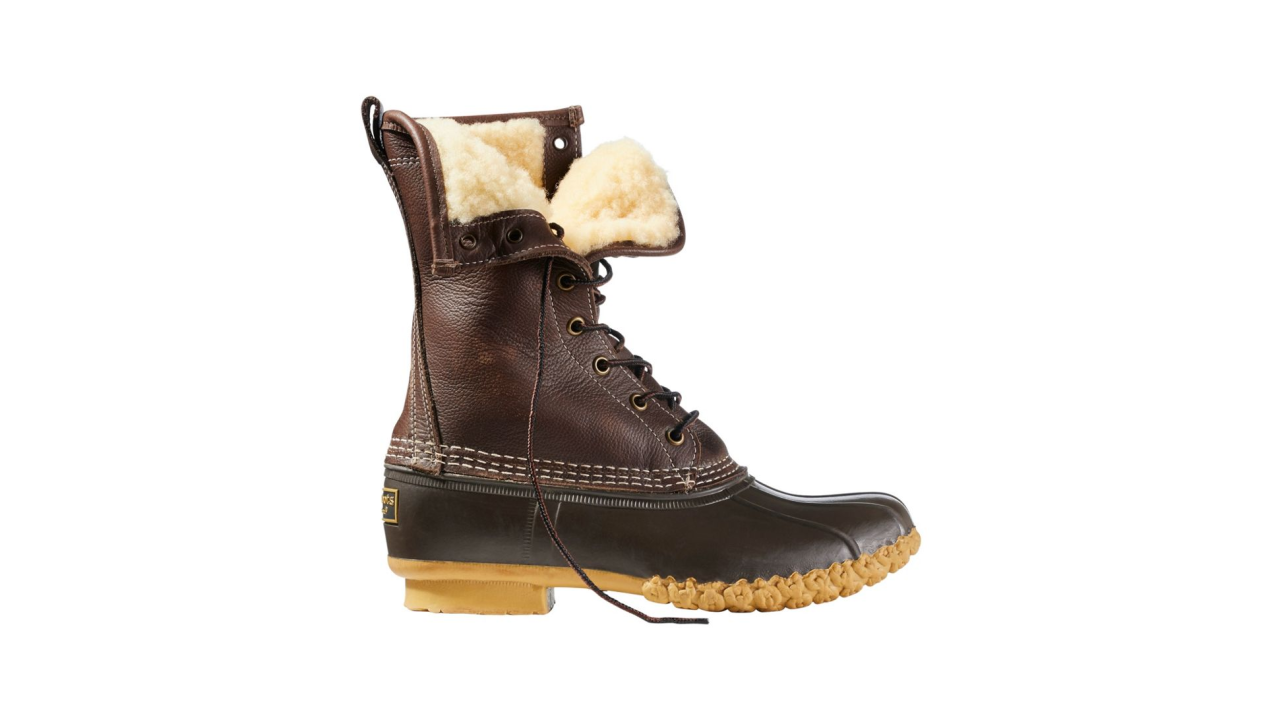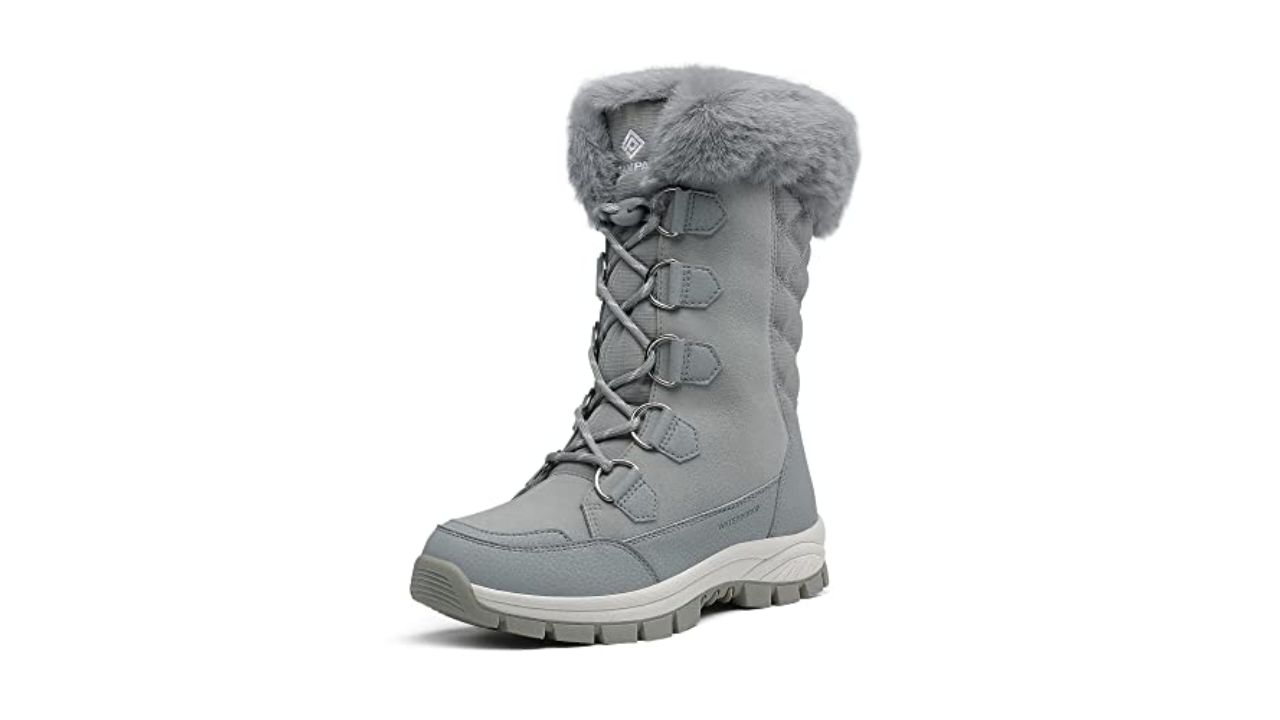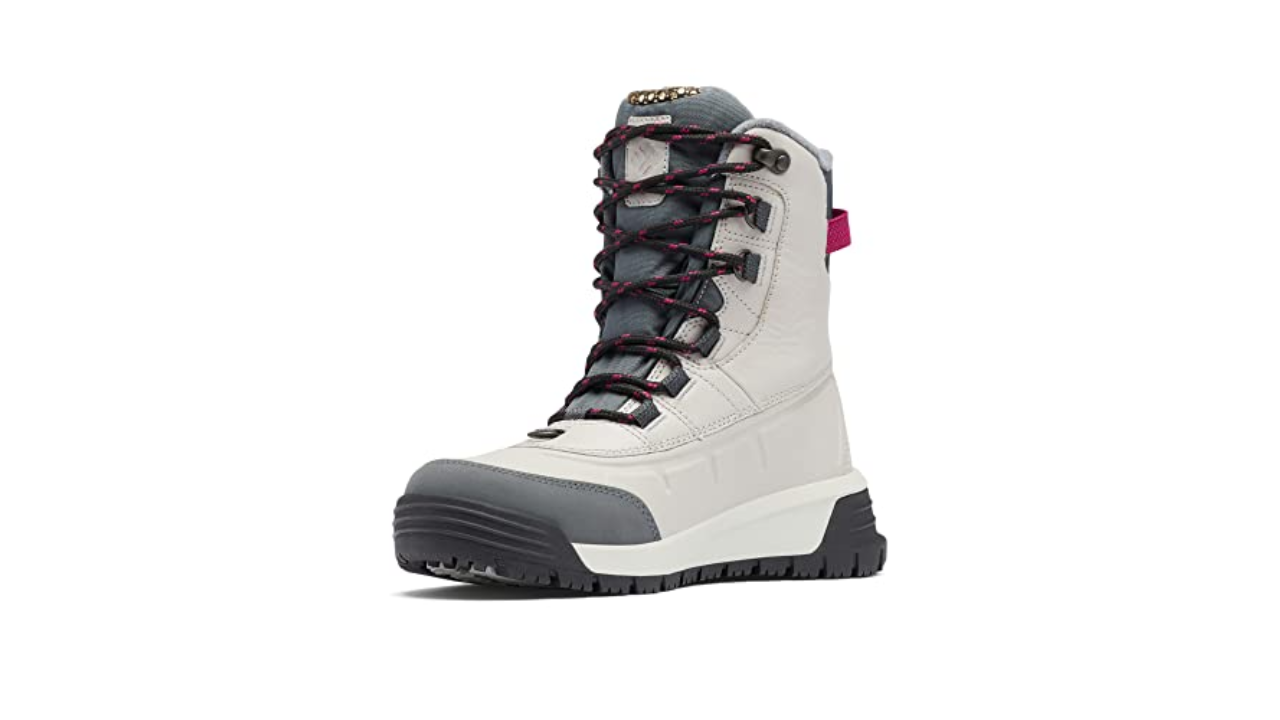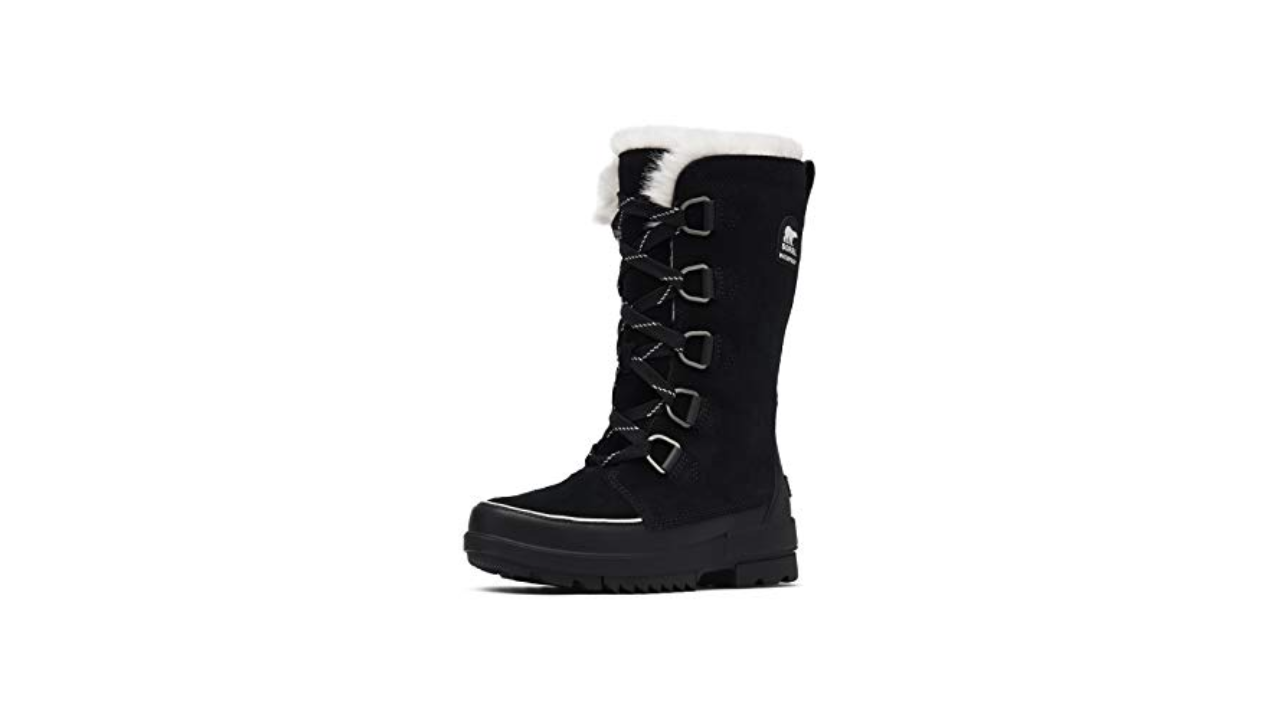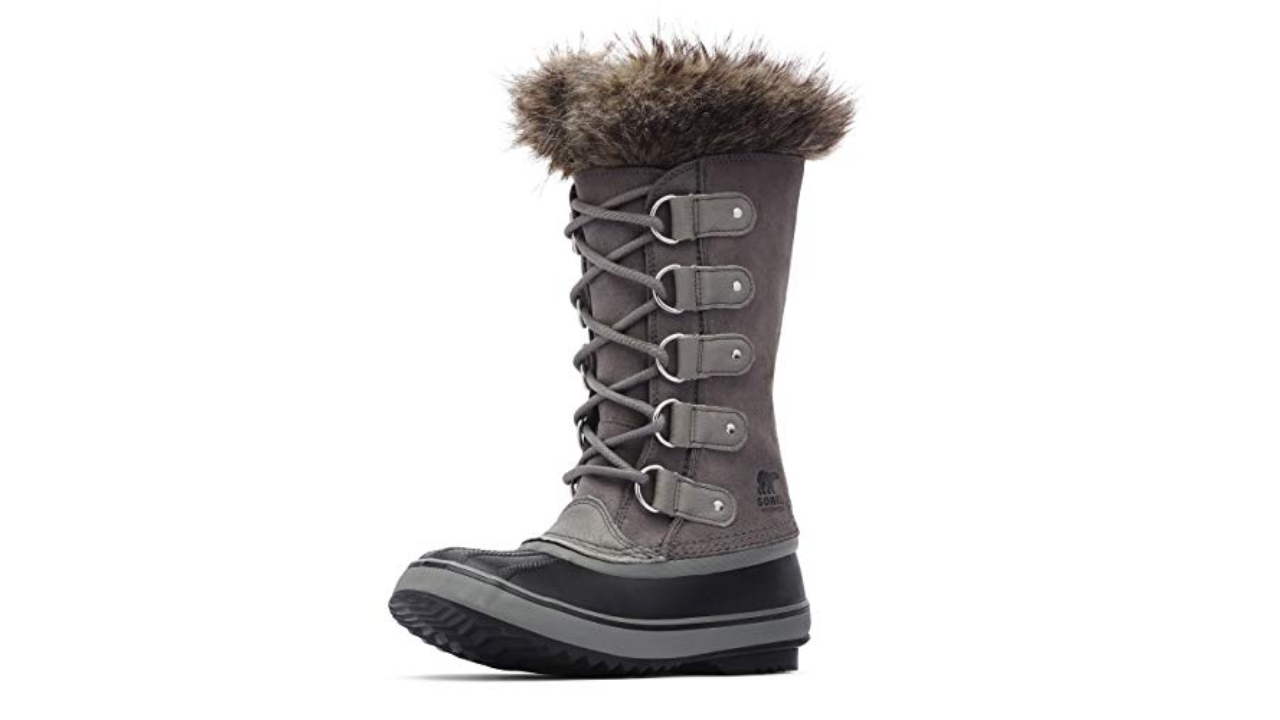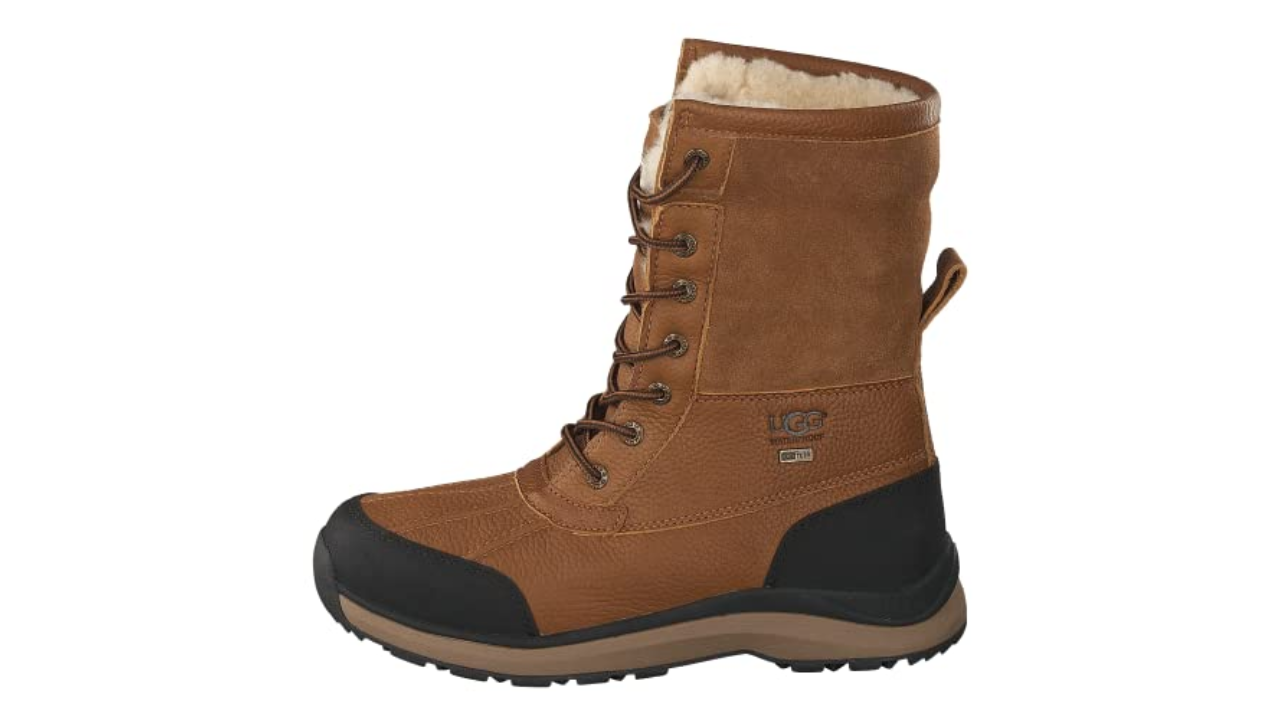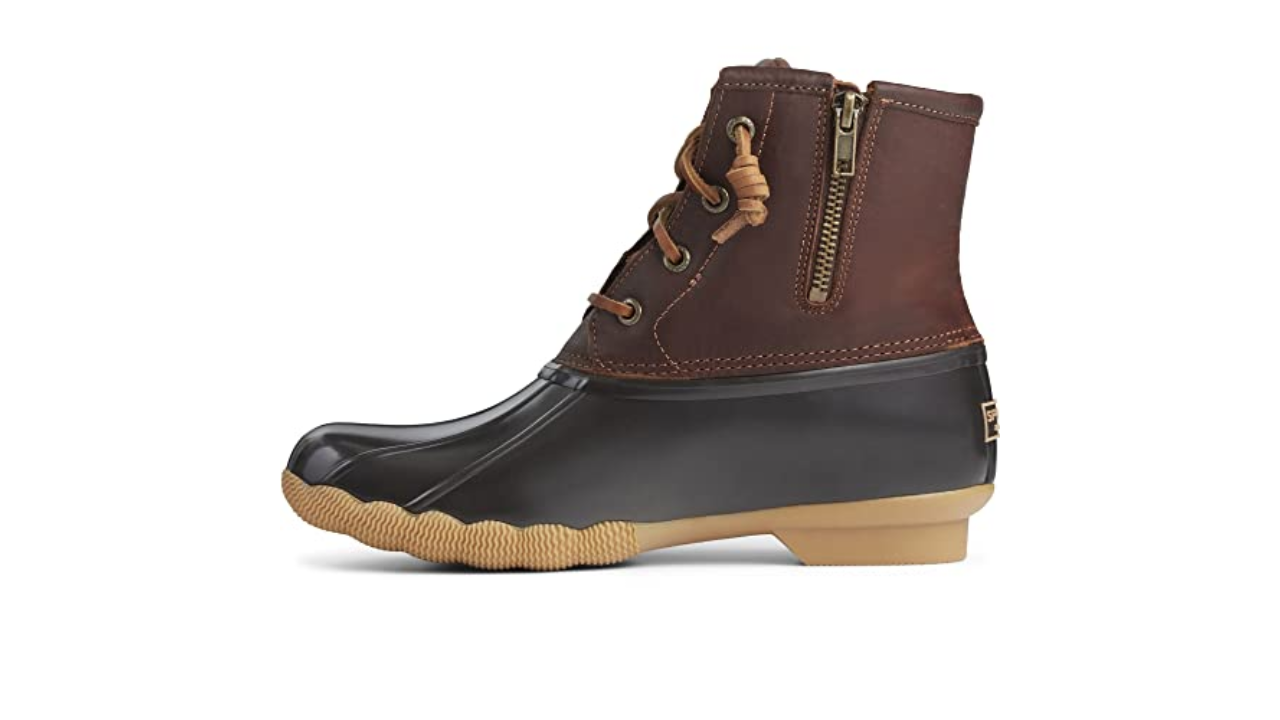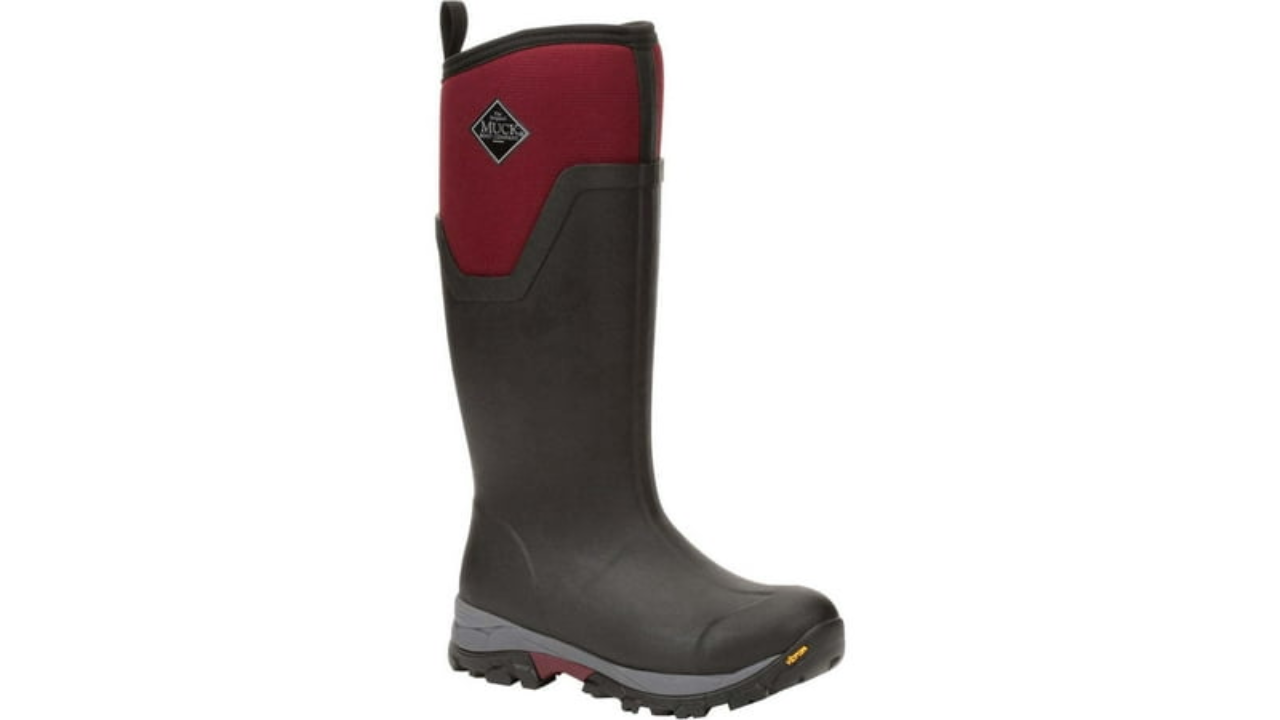We independently evaluate the products we review. When you buy via links on our site, we may receive compensation. Read more about how we vet products and deals.
The 15 best snow boots to wear in winter for 2024, according to experts
Warm, supportive pairs to treat your feet this season, from Columbia to Ugg.
Don't look now, but we're in the thick of winter's nastiness. And maybe it's occurred to you that a reliable, high-quality pair of snow boots would be just the thing for keeping your toes toasty and dry. The perfect snow boots will protect against harsh conditions with rugged soles to stop you from slipping and sliding on icy sidewalks. Waterproof functionality will also protect your feet from slush.
L.L.Bean 10" Shearling-Lined Bean Boots
Best Overall
Baffin Escalate Boots
Best Boots for Warmth
Dream Pairs Women's Waterproof Winter Snow Boots
Best Winter Boots for Walking
Icebug Ivalo 4 BUGrip Winter Boots
Best Snow Boots for Ice
Columbia Women's Bugaboot Celsius Boots
Best Waterproof Boots
Sorel Tivoli IV Tall Waterproof Women's Boots
Best Insulated Boots
Sorel Women's Joan of Arctic Waterproof Boots
Most Stylish Snow Boots
Oboz Bridger 9-Inch Insulated Waterproof Boots
Best Boots for Deep Snow
The North Face Nuptse Apres Booties
Best Slip-On Boots
Ugg Women's Adirondack Boot Iii Boots
Most Comfortable Winter Boots
Sperry Women's Saltwater Core Boots
Best Rain Boots for Snow
Totes Henrique Snow Boots
Best Affordable Winter Boots
Lowa Renegade Warm GTX Mid Boots
Best Splurge Snow Boots
Toms Mojave Boots
Best Short Boots
Muck Women's Arctic Ice Tall Agat Boots
Best Tall Boots
Instead of wasting time and money buying winter boots that aren’t as durable as they claim, we consulted a team of podiatrists, outdoor enthusiasts, travel experts and our very own shopping editors to see which pairs truly walk the walk. The 15 best winter boots, including beloved best sellers like L.L.Bean, Ugg, North Face and Columbia, below deserve a coveted spot in your cold-weather wardrobe.
PS: If you need to view more winter accessories, consider adding a new coat or touchscreen gloves to your wardrobe.
Best overall snow boots
Sizes: 6-11
Insulation: 200 grams of Thinsulate
During a poll of our team’s favorite snow boots, three staff members listed these L.L.Beans as their go-to’s, including myself. Not only are the boots (which come in both men’s and women’s sizes) incredibly warm thanks to their cozy shearling lining, but they are waterproof too, so you can walk through snow and puddles without your feet getting wet. Each pair is hand-sewn in Maine, so they're durable and built to last. Contributing editor Lisa Schweitzer and I have both had a pair for several years and they are still looking good as new. The boots aren’t overly bulky, weighing less than four pounds. And they have a rugged rubber sole that prevents you from slipping and sliding. One caveat? Our managing editor Scott Simone said they can sometimes be too hot for indoors: “Definitely not the type of boot to wear to the office without bringing a change of shoes to avoid your feet sweating all day long.”
- Warm
- Waterproof
- Comfortable
- Available in men's and women's sizes
- Can be too hot to wear indoors
Other top snow boots we recommend for 2024
Sizes: 6-11
Insulation: B-Tek Heat lightweight, 4-channel hollow-fibre insulation
These babies are tundra-rated, so you can be sure that your feet will stay nice and warm. That’s probably why Backcountry gearhead Ashleigh McClary said they were one of her top choices for snowshoeing in deep snow. The tall boots are both waterproof and breathable; a thick rubber sole with a honeycomb design offers excellent traction. Laceless, they're easy to get on and off thanks to elastic toggles. Just be aware that there are no half sizes; the brand recommends sizing up to be safe.
- Tundra-rated
- Good traction
- Tall silhouette
- No half sizes
Sizes: 6-11
Travel blogger Nadia Podrabinek listed these fashionable yet functional women's winter boots as one of her top picks “due to their waterproof design and warmth retention.” Lined with faux rabbit fur for coziness and a slip-resistant rubber sole for stability, they have a zipper plus lace-up closures to prevent the elements from entering. Hundreds of Amazon shoppers are fans of the cushioned insole for all-day comfort. “I bought these boots to wear in Quebec in January for a week,” one customer raved. “They rocked! The fur lining goes to the end of the toes and they are super comfortable. We walked over 10,000 steps a day and my feet never hurt once. I was able to wear just regular socks and my feet stayed extremely warm.”
- Affordable
- Cushioned
- Comfortable
- Slip-resistant
- Some shoppers noted issues with the zipper
Sizes: 5.5- 10.5
Insulation: 100% recycled polyester
Backcountry's McClary raves about these ultra-rugged Icebug boots that boast tacky traction for very icy terrain. “I can confidently and safely shovel my driveway and sidewalks and walk around icy parking lots knowing that I’ll be safe,” she told us. They zip up the front so they are super easy to take on and off; synthetic fleece and polyester insulation will keep you warm in freezing temperatures. One REI customer raved, “They're comfy, super lightweight and stable on ice and packed snow. I actually took them out to a snowfield in the Rockies to test them out and was really impressed with the performance. The soles have built-in traction so they grip incredibly well, without the bulk and annoyance of external traction.”
- Excellent traction
- Stable on ice
- Expensive
Sizes: 5-12
Insulation: 200 grams
Canadian sports enthusiast and skating boutique owner Georgy Lowell is a fan of these women's snow boots because they “are waterproof, insulated and offer excellent traction on snow and ice.” The waterproof wonders keep rain and snow out while letting your feet breathe. They pack in 200 grams of insulation (that's a lot) and the brand’s patented heat-trapping technology. Shared one Zappos reviewer: “I ended up doing 5km of off-trail snowshoeing and was so happy with them. They're supportive and my foot felt 'hugged' the entire time. The boots are light. Nice looking. Oh ya, and they're really waterproof! I went up to my knee in a bog; between these and my gaiters my feet were bone dry.”
- Waterproof
- Warm
- Great traction
- Pricey
Sizes: 5-12
Insulation: 100 grams
Senior Beauty Editor Jennifer Romolini bought these insulated winter boots for a month-long trip to Iceland in 2021 and loved how they held up. “I needed something warm and rugged for wet, high-windchill winter hikes and these were ideal. They come up high, which means you can walk in serious snow, but the best part of them is the stability — the sole is super sturdy on slippery surfaces.” Perhaps most notable was how toasty they kept her feet, thanks to 100 grams of insulation. “These are SUPER warm and sometimes a little too warm,” she said. “They could be more stylish, but when you're desperate for warmth in a snowpocalypse, you don't really care.” While the boots are waterproof enough that her feet never get wet, she said over time the suede on the outside can become soaked in snowy/rainy conditions.
- Super warm
- Comfortable
- Feet stay dry
- Good traction
- Outside of shoe can get damp
Sizes: 5-12
Insulation: Removable 6 mm washable recycled felt
These Sorels are so cute even Jennifer Aniston has been spotted in them. That’s why McClary said the popular boots are her most stylish pick: “For winter fashion, you can’t go wrong with the classic Sorel Joan of Arctic Boots. They are incredibly warm and look so cool! I have sold more of these than any other boots while working at Backcountry.” The faux-fur trimmed winners are waterproof, seam-sealed and comfort-rated to -25 degrees Fahrenheit, meaning they will keep your feet completely dry and seriously warm in even the most frigid conditions. Executive editor Nicole Sforza is also a fan. She’s owned them for 10+ years and said: “These are the quintessential snow boots — they're durable, lace up like an ice skate so feel really secure and they have fun faux fur peeking out from the top. They'll actually improve a winter outfit, not take away from it! Very grippy at the bottom for when streets are slick.” She added that they're not the lightest option, however — they do add weight to your steps (maybe that's a good thing?!).
- Celeb-approved
- Fashionable
- Waterproof
- Warm
- Expensive
- On the heavy side
Sizes: 6-11
Insulation: 400 grams 3M Thinsulate
These Oboz boots are another one of McClary’s picks for wearing in deep snow and it’s easy to see why. Along with 400 grams of insulation to keep your feet extremely warm in arctic temperatures, the shoes have a thick rubber sole and a liner that makes them fully waterproof and breathable. One Oboz shopper wrote: “This boot outdid itself in performance, quality and durability. I went to Latvia for a month in February and was met with all kinds of winter conditions, from freezing rain to a downpour of snow. This boot continued to perform. I would walk over seven miles and my feet were still warm and dry by the end of the day.”
- Very warm
- Good traction
- Waterproof
- Expensive
Sizes: 5-11
Insulation: 550 fill goose down insulation
For small doses of the outdoors, McClary recommends these slip-on snow boots from The North Face. “They’re a great option to keep at the door for quick trips outside when you don’t want to lace and unlace your boots. For all of the days I’ll be driving up to the ski mountains that aren’t crazy icy, you’ll find me wearing these," she explained. The boots are easy to slip on and off and have a toggle cuff at the top that lets you trap in warmth and find a secure fit. Plus, they have a water-repellent finish to keep your feet dry.
- Warm
- Water-repellent
- Comfortable
- Not tall enough for deep snow
Sizes: 5-11
Insulation: 200 grams
This pair by Ugg is one of Amazon’s most popular snow boots with an impressive 4.6-star rating from over 3,600 reviewers. They have the same cozy shearling lining as the classic Ugg boots, with an added rugged outsole and waterproof membrane to make them more effective in the snow. Senior commerce writer Kristin Granero loves them because “the lining is incredibly toasty (like a warmer for your feet), and the design is versatile. A winter staple, don't be surprised to find yourself wearing them everywhere.” There are eight colors to choose from, so you can easily find a style that pairs well with your winter wardrobe.
- Comfortable
- Not bulky
- Waterproof
- Expensive
Sizes: 5-12
While these Sperry options are marketed as rain boots, deals writer Britt Ross has worn them for multiple winters with no issues. “They don't come up too high, allowing for more mobility than taller boots, they keep my feet dry, have great traction and I think they look pretty cute with leggings/tights tucked into them,” she said. She does note that since they aren’t insulated like a typical snow boot, you will have to wear thicker socks for warmth. “Also, since they're on the shorter side, I wouldn't try walking through deep snow with them, but they serve my needs (walking on slippery sidewalks) well.”
- Comfortable
- Waterproof
- Non-slip
- Not technically snow boots so could be warmer
Sizes: 6-11
These adorable snow boots by Totes prove you don’t need to spend a ton of money on a great pair. Branded content and partnerships editor Rory Halperin has rocked them for a few winters now and raved, “They're comfy to wear all day and are pretty light — some other snow boots I've had were way too heavy so I dreaded wearing them. I also like that they're on the taller side — perfect for wading through snowy urban crosswalks. And the price is right.” She did note that while they work with leggings, other kinds of pants won't easily tuck inside.
- Affordable
- Lightweight
- Comfortable
- Only available in black
Sizes: 6-11
If you’re looking to enjoy winter activities like hiking or snowshoeing, McClary recommends investing in these Lowa snow boots. “They are as waterproof as it gets, provide a dialed-in fit and plenty of support, have a grippy sole and lots of insulation,” she said. Along with a waterproof Gore-Tex (see FAQs, below) fleece lining for warmth, the boots boast a wool cuff trim to wick moisture away. The lug sole grips all types of terrain to prevent you from sliding around.
- Fully waterproof
- Supportive
- Warm
- Great traction
- Expensive
- Not tall enough for deep snow
Sizes: 5-12
Deputy editor Izabella Zaydenberg has sported these Toms ankle boots for two years and likes that “they're not super chunky — they're lightweight, pretty cute and keep my feet warm. I like that there are multiple colorways and the suede is very soft.” While you can’t wear the short boots in areas that get several feet of snow, Zaydenberg says “They work for city winters, though, and are good for that mucky gray slush we get a couple of days after snowfall.” She added, "Though they're technically water-resistant and not fully waterproof, they keep my feet dry even when I accidentally step in a puddle.”
- Comfortable
- Lightweight
- Water-resistant
- Not suitable for deep snow
Sizes: 5-11
“I live in northern Utah and frequently encounter deep snow both at my home and at the ski resorts, so for those days I love a tall pull-on boot like the Muck Boots Arctic Ice Agat,” said McClary. “Ski resort parking lots often have ice, and these are great for that and deep snow. I also love having slip-on boots ready by the door for letting my dogs out.” The 100% waterproof gems have a fleece lining for warmth, a durable Vibram outsole (see FAQs, below) and a thick rubber sole for grip.
- Tall
- Waterproof
- Great traction
- Expensive
The reviews quoted above reflect the most recent versions at the time of publication.
What factors should you consider when buying snow boots?
According to Backcountry gearhead Ashleigh McClary, keep in mind how tall your boots need to be. If you’re in an area that gets a lot of snow that builds up fast, opt for a higher silhouette to prevent anything from seeping in; if you’re in a city that gets plowed and shoveled often, you can stick to shorter boots.
She said to also consider how much grip boots have on the bottom, the amount of insulation they have and the temperature they're rated to: "How easy are they to put on/take off? What activities do you plan to do in them? How waterproof are they? And of course, how good do they look?"
Warmth
When it comes to finding a super cozy pair of snow boots, it’s all about the type of insulation. Canadian sports enthusiast and skating boutique owner Georgy Lowell told us the key is to look for “effective insulation materials such as Thinsulate, PrimaLoft or fleece lining. These provide warmth while ensuring breathability and moisture management.”
McClary added that the temperature rating is just as important (if not more) than the brand of insulation. “Any insulation over 150 grams is a good place to start,” she said. “The higher the number over that 150 grams, the warmer the boots will be.”
Traction
When it comes to traction, NYC and NJ-based podiatrist and owner of Dr. Brenner's Rx Foot care products Dr. Hillary Brenner says, “For ice, you want the bottom of the shoe to have metal spikes, cleats or studs. And for walking in snow, you want the boot to have a non-slip rubber sole.”
Lowell recommends choosing pairs with an outsole that’s “crafted from robust and enduring materials such as Vibram or Michelin, as they feature a lug pattern that maximizes traction on icy and snowy surfaces.”
Waterproofing
Most winter boots are going to be waterproof, but it is always a good idea to verify. Dr. Brenner suggests “looking at the tongue of the shoe to confirm, though sometimes it will be written on the shoe itself or the sole.” McClary recommends looking for “tech specs and keywords in the product title like GTX (Gore-Tex) or WP (waterproof),” when shopping online. Lowell told us he also likes to read customer reviews as “owner’s experiences with a boot's waterproofing in actual use are frequently instructive.”
Fit
Travel blogger Nadia Podrabinek suggests going up a size in boots in case you need to wear thicker socks for added warmth. “This is because thermal socks, typically worn in colder climates, are bulkier than regular socks. Having an extra bit of room in your boots can enhance comfort and circulation, keeping your feet warm and cozy during your winter travels,” she told us.
Just remember to consider the climate when determining if you need thicker socks, McClary told us. Because “if your feet get too hot in the socks and sweat, your feet will actually be colder.” She added: “If you are planning to use the boots for a winter activity like hiking or snowshoeing, you’ll want the boots to fit similarly to your running shoes or hiking boots. But too much room in a boot will cause your foot to slip around, so you want to make sure you just have enough room for your foot to expand but nothing extra from side to side (laterally). If you’re going to be hiking or snowshoeing, you’ll also want to consider lace-up boots that can secure your foot into place vs slip-ons.”
Dr. Brenner shared with us her go-to trick for accurate sizing. “To get the best fit, make sure the tip of your thumb can fit between the end of the shoes and the end of your longest toe. If you're wearing thick socks, the boot should fit a bit tighter and if you're wearing thin socks, the boot should fit a bit looser.”
Our team of experts:
Ashleigh McClary, Backcountry gearhead
Dr. Hillary Brenner, NYC and NJ-based podiatrist and owner of Dr. Brenner's Rx Foot care products
Georgy Lowell, Canadian sports enthusiast and skating boutique owner
Nadia Podrabinek, travel blogger









